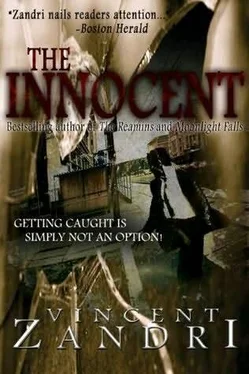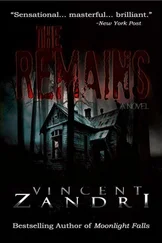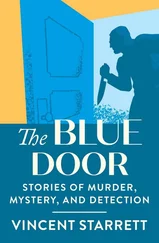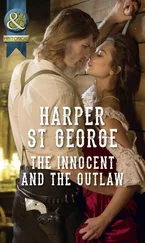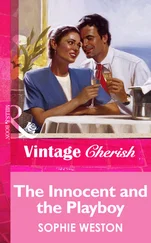And there’s no denying that Mike Norman was affected the most.
Even now I can see him lying on his side, knees tucked into his chest, arms wrapped tight around his shins, fingers locked in place at the knuckles. I can see his black hair sticking up straight on the left side of his head. His face is thin and filthy with saliva and dirt. A patch of dry blood stains the small space between his upper lip and nostrils. Eyes wide, he gazes straight ahead into an imaginary distance. He doesn’t seem to see the iridescent glow of the tower beacons or the small gathering of inmates who are shooting up with drugs lifted from the psycho ward. He doesn’t seem to see the rebel inmates granting interviews to special reporters allowed inside the yard, any more than he sees the famous William Kunstler, long-haired lawyer for the people, seated at a long folding table conducting negotiations with the Panther leaders. He doesn’t see the sharpshooters poised on the stone wall or the helicopters making their perpetual flybys. He doesn’t feel the power of the propeller-driven wind when they buzz the yard. He doesn’t see the puddles of blood or my bare feet. Mike sees only what he sees. And I cannot imagine what that is. And I’m not sure I want to know.
I MET MY LAWYER, Tony Angelino, at the Miss Albany Diner on Broadway beside the old RCA building, the six-story, concrete monstrosity that was topped off with a fifty-foot-high, plaster, Nipper the dog. Nipper sat doggy style on the flat roof, his tail end pointing to the banks of the Hudson River like an insult. Nipper was a magnificent leftover from the old days when the RCA company had run and operated the building-back when Albany had been a budding metropolis for gangsters like Legs Diamond and political gods like Erastus Corning; before the city had paved over the trolley tracks and integrated the districts that had originally been divided between the Irish and the Italians and the Polish and the Canadian French, and you knew where you stood just by sniffing the particular aroma of whatever dishes were being cooked for the evening meal. My own grandparents had come from the Ancona region of Italy directly to Albany after a brief stay on Ellis Island where my two-year-old father was nearly shipped home, having contracted a severe case of influenza during the long journey. In Albany my grandfather went to work for a local grocer, then for an automotive parts distributor; then he began a construction company, and, yes, his father’s brother was responsible for having invented a wireless communications system that the world would one day embrace as radio, although this afforded no special privileges to my father and his family once they arrived in the States. During the Depression, he also moonlighted for some of the more ambitious and money-hungry local politicians, driving trucks full of “near-beer” from Albany to Hartford and back again in the middle of the night under blackout conditions. In those days, there was a lot of money to be made working for the local politicians.
Sometimes it was the only money.
Years later, the corruption in Albany had supposedly been squelched by honest taxpayer coalitions. On the other hand, what had once seemed like a budding metropolis now seemed devoid of life itself-a small city filled to the brim with state workers making lower-than-middle-class wages, perpetually trapped in an overcast atmosphere best described as prison-gray.
On the other hand, if you wanted to find it, you didn’t have to look too hard around Albany to uncover corruption both on the street and on the political level. Just last year the city treasurer, Ernest McDaniels, had been busted for taking a kickback from a contractor who wanted the contract for the new train station that would occupy four square blocks of razed downtown property. Now both men were doing time at Auburn. In the end, I suppose, the difference between the politicians of the past and those of the present is that now you can’t flaunt the fact that you’re on the take.
Tony Angelino was a staff lawyer for Council 84 on Colvin Avenue in the west end of the city. Council 84 was the New York union that represented law enforcement officials throughout New York State, including New York City. He had already started on a plate of eggs over easy and buttered toast when I came through the narrow door of the old Miss Albany Diner.
“Breakfast at four-thirty?” I asked, taking a seat on the empty stool directly beside the short, square-shouldered lawyer.
“If you remember correctly, paisan,” Tony said with a deep, careful voice, “my breakfast was interrupted this morning by a plea for help from a certain guinea warden I know.” He wiped the edges of his mouth with his napkin and took a quick glance at the lap of his pinstriped suit to make sure he hadn’t spilled any egg yolk during the exchange of conversation. “Hey, Cliff,” he said across the counter to a short, balding man with a white apron wrapped around his thick torso, “coffee for my paisan.”
I watched Cliff retrieve a white ceramic mug from the stainless-steel shelf above the grill.
“How you holding up?” Angelino said, placing a good-sized portion of egg onto a triangular piece of toast and then stuffing it into his mouth.
“Not bad for a guy who’s been kidnapped from his own bed, held at gunpoint by the police, busted across the forehead, accused of harboring evidence and obstructing justice.” Taking in a breath. “Not bad when you consider I’ve been tossed into jail, printed, photographed, and booked. Not at all bad now that my reputation has been slandered in the newspapers and on national television. Not bad when you consider my house has been ransacked and the jerks who did it have a fetish for slicing giant X’s through photographs of my dead wife.”
I let out a breath.
“Glad I asked,” Tony said.
I took a sip of the coffee and looked around the old diner that had been here since my father was a kid growing up less than a mile from here on Colonie Street, smack between the redbrick rectory of Sacred Heart Church and the western bank of the Hudson River. The counter was made of light oak that had been covered some years back with a white laminate top. The walls were covered with a stainless-steel paneling that hadn’t quite managed to live up to the title of stainless, displaying as it did the brown-green marks of spattered grease. The big, boxy gas-fired grill took up most of the wall space directly across from Tony, and the floor was covered with white-and-black asbestos tiles. The Miss Albany was an old diner that looked like it might have been a trailer at one time. But now the place was an Albany landmark, a steadfast survivor amongst the abandoned lumber yards and steel mills that, once upon a time, made Broadway and the banks of the Hudson River seem like a hopping, if not a somewhat seedy, destination.
Frank Sinatra crooned over the loudspeakers while I sipped my coffee.
“So you’ve decided to take my case,” I said.
Tony puckered his lips and blew on the surface of his coffee. “It’ll probably cost me my job,” he said. “A union lawyer representing an indicted lawman would be a definite problem.”
“Don’t do anything you’ll regret.”
“I wouldn’t get up in the morning if I didn’t plan on doing anything I would regret later on.”
“We can sit here and philosophize all day, Tony. But you got to think about number one, no matter what. So I’ll understand if you want to say no.”
“Listen, Keeper, I’ve been thinking about going out on my own for a long time now.”
“I thought you liked the Council.”
“It’s not that. I’m forty-two. Maybe it’s that midlife thing and maybe it’s not. But I feel like I got to make a move. This might be as good a time as any.”
Читать дальше
